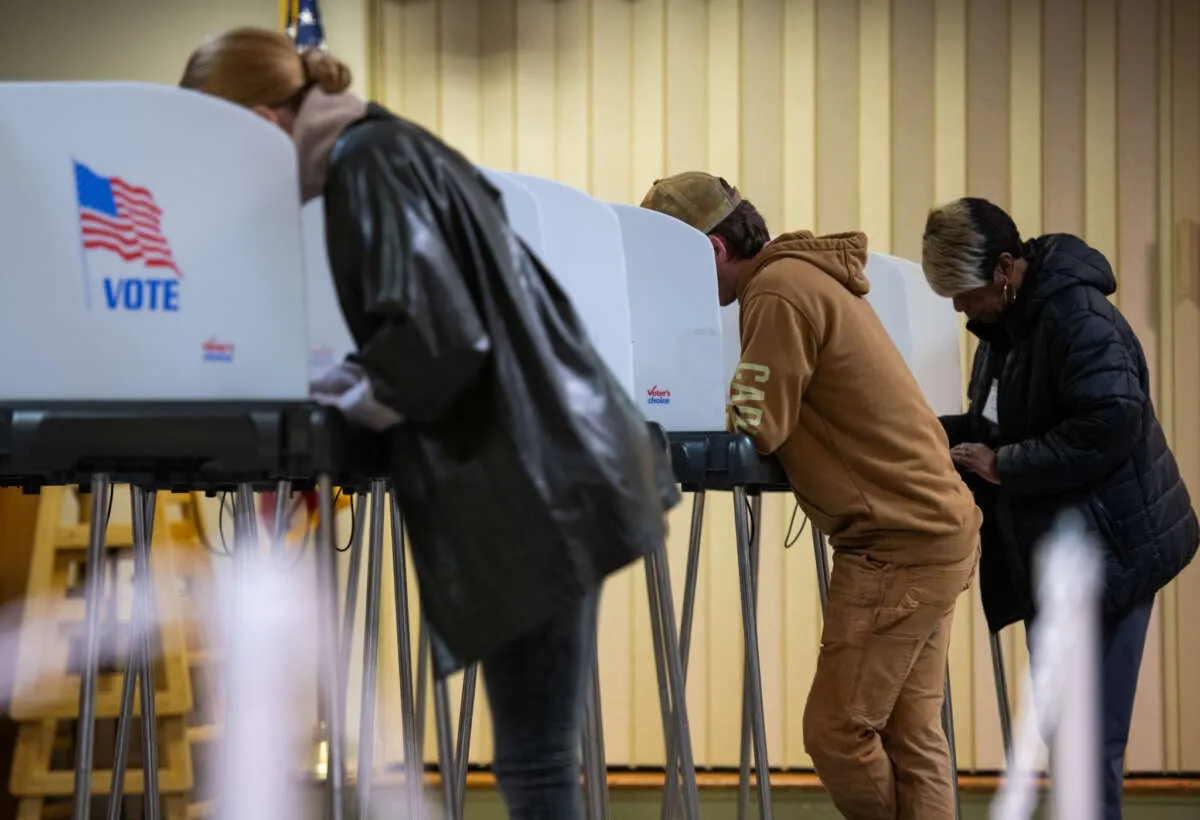NORTH CAROLINA – The political landscape in North Carolina has always been complex, but recent events have added layers of intrigue. Despite winning a seat on the North Carolina Supreme Court, Democrats may find that their victory is bittersweet, as their hold on various aspects of state governance remains precarious.
In the recent elections, Democrat candidate Jane Smith won a significant seat on the state’s highest court, defeating her Republican opponent, John Doe, in a contentious race. This win was seen as a pivotal moment for the Democratic Party in a state that has been trending more Republican over the past decade. However, as celebrations cool, the implications of this victory cast a longer shadow over the political future of North Carolina.
One of the most pressing challenges for the Democratic leadership is the recent ruling that permits the Republican-controlled legislature to absorb controlling authority over the state’s elections board. The decision, which came down from the North Carolina Supreme Court, allows Republicans to manage election-related matters more closely, raising concerns over fairness and transparency in the electoral process.
The Significance of the Elections Board Takeover
The North Carolina State Board of Elections plays a crucial role in maintaining the integrity of electoral processes in the state. Its responsibilities include overseeing local election officials, managing voter registration, and ensuring compliance with state and federal election laws. By securing control over this board, Republicans are in a position to implement policies that could shape the state’s electoral landscape for years to come—potentially waving at the long battle over voter ID laws, redistricting controversies, and other critical electoral matters.
The ruling has sparked anxieties within the Democratic Party, who argue that the changes could lead to greater voter suppression tactics and manipulation of election outcomes. As such, many view the Democratic win in the Supreme Court as a pyrrhic victory, one that comes with daunting challenges that could undermine their influence in state politics.
Griffin’s Controversial Challenge
Adding to the unfolding drama in North Carolina politics is the ongoing motion by former state Supreme Court candidate, Gary Griffin. Following his defeat in the most recent election cycle, Griffin has raised questions about the legitimacy of the electoral results, suggesting irregularities that he argues could have shifted the outcome in his favor. His claims, however, are met with skepticism and are considered by many to be a veiled attempt to sow discord and undermine public confidence in the electoral process.
This endeavor has implications that reach beyond Griffin. Should his efforts gain traction, it may lead to a dangerous precedent concerning post-election challenges and the broader acceptance of election outcomes. Critics argue that such disputes, fueled by unfounded allegations, could foster dissent in the governance of democracy itself.
Political Landscape Transformation
The political landscape in North Carolina is changing, resembling a more polarized environment than ever. The dynamics of blue and red valleys are evident, with urban areas leaning toward Democratic candidates while rural regions remain steadfastly Republican. These divisions have been magnified in light of recent judicial appointments, elections, and subsequent rulings.
This contention won’t only impact future elections—it also has the potential to influence policy directions on a variety of pressing issues, from healthcare and education to economic development and social justice. The battles are indicative of a shifting power paradigm, where the Supreme Court’s decisions may help determine which party holds the reins of governance.
The Implications for Future Elections
Looking ahead, the implications of the recent judicial decision, combined with Griffin’s challenge, could lead to significant repercussions for the Democratic Party. With control of the elections board now secured by Republicans, future elections may be more contentious and better branded by stricter regulations and legislative endeavors directed at controlling voter turnout.
Moreover, local Democrats must recalibrate their strategies. Engaging communities and fostering grassroots movements will be key in overcoming the barriers presented by a GOP-led elections board. As urban and suburban communities are becoming increasingly Democratic, mobilizing these votes will be paramount to offset potential suppression tactics and ensure equitable representation in future elections.
Unity and Party Strategy
The North Carolina Democrats now face a critical juncture. They must heal rifts that have emerged in their party while also strategizing on how to fortify their ground game. Policy proposals aimed at galvanizing core Democratic values—such as healthcare access, education equity, and economic fairness—could resonate with undecided voters amidst an unforgiving political climate, reinforcing party loyalty.
As the state grows increasingly diverse, the challenges of appealing to a wide range of constituents requires unity and clear messaging. Democrats need to forge a collective identity built on inclusivity and empowerment to retake or maintain seats in the General Assembly and beyond.
A Call to Action
With rising concerns over electoral processes and governance, the Democratic Party in North Carolina faces a challenging horizon. The recent Supreme Court victory may appear as a beacon of hope, yet the simultaneous environmental changes present formidable hurdles that demand immediate action and long-term strategy.
As these dynamics unfold, it will be interesting to see how both parties respond to the changing tides. With voter confidence wavering and emotions running high, engaging the public in an honest discussion about voting rights and election fairness is more important than ever. Transparency in leadership could help bridge divides and instill renewed faith in the democratic process as North Carolina navigates its tumultuous political landscape.
Ultimately, the path forward will depend on the actions taken by both parties in the wake of these judicial revelations. While the Democrats celebrate their recent win on the state Supreme Court, they must also grapple with the realities of unseen challenges and strategize effectively to retain ground—while Republican leadership works diligently to entrench their influence. The intricacies of North Carolina politics will continue to evolve, and it’s a story worth watching.







